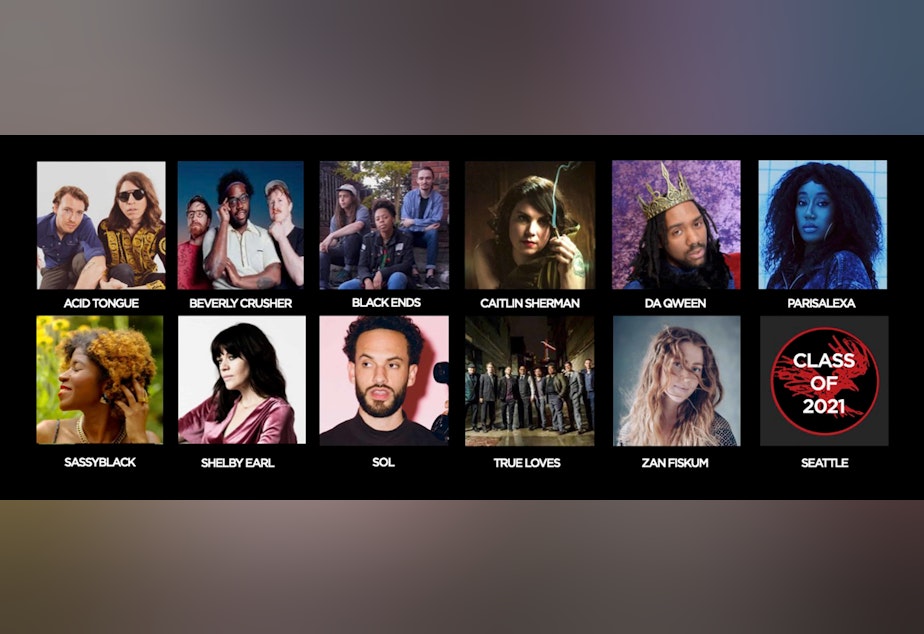This Seattle non-profit is giving $5,000 grants to local musicians, no strings attached

Black Fret Seattle got up and running before the pandemic struck, aimed at providing grants to local bands and musicians. This week, the non-profit gave $5,000 to eleven artists and bands -- no strings attached.
KUOW’s Kim Malcolm spoke to Black Fret Seattle's executive director Ben London .
This interview has been edited for clarity.
Ben London: Black Fret was built on the assumption that local music is art and should be supported in the way that the opera, the symphony, the ballet, or other traditional organizations have been to date. What really drew me to it is that in a city where the cost of living is increasing at a furious rate, and there have been big changes in the music business tied to streaming, it's harder than ever for musicians to build scale. What they need more than anything is capital to support their endeavors.
Kim Malcolm: And who provides you with the capital?
It’s a membership organization. Our members are music lovers. They pay a yearly fee. We curate private events for them to see the best and brightest of emerging local music. At the end of the year our members, along with our past grant recipients and some music industry advisors, nominate and then vote for the artists who receive the grants.
Eleven different local bands and artists received $5,000 grants recently. Can you tell us about a few of them?
You have everything from the acid-tinged pop of Acid Tongue, to the R&B of Parisalexa, to the gunk pop of Black Ends, and a throwback to the '90s in Beverly Crusher. It's just all different sorts of flavors.
Were you one of the people who got to make a call to a recipient and tell them the news?
I was. I had the pleasure of getting to notify all of our eleven grant recipients and it was a really emotional experience. Three of them burst into tears when I told them. There's so much pressure built up after two years of living through a pandemic, where musicians, in particular, have been completely cut off from their livelihood, the ability to perform live in front of audiences.
You did this last year. What did you learn about how the musicians used that first round of money?
They used it in a variety of different ways. It helped them make records. It helped them hire professional services, publicists, promotions. The real challenge, when you're an emerging artist, is you don't have somebody else helping you with a lot of these things that you need to do. I think there's a thought that the internet solved all the problems for musicians, but it's even harder in some ways now to cut through the fact that anybody can make a record in their basement and put it up on the internet on the same day.
Sponsored
I would imagine the impact of these grants became even more significant because live performance was such a rare thing during this pandemic.
This is true, and these are unrestricted grants. Whether a musician uses it to buy equipment, to make a record, to hire a photographer, or they're simply paying their rent, it's all part of what it takes to get a music career going, particularly during a pandemic.
Listen to the interview by clicking the play button above.





